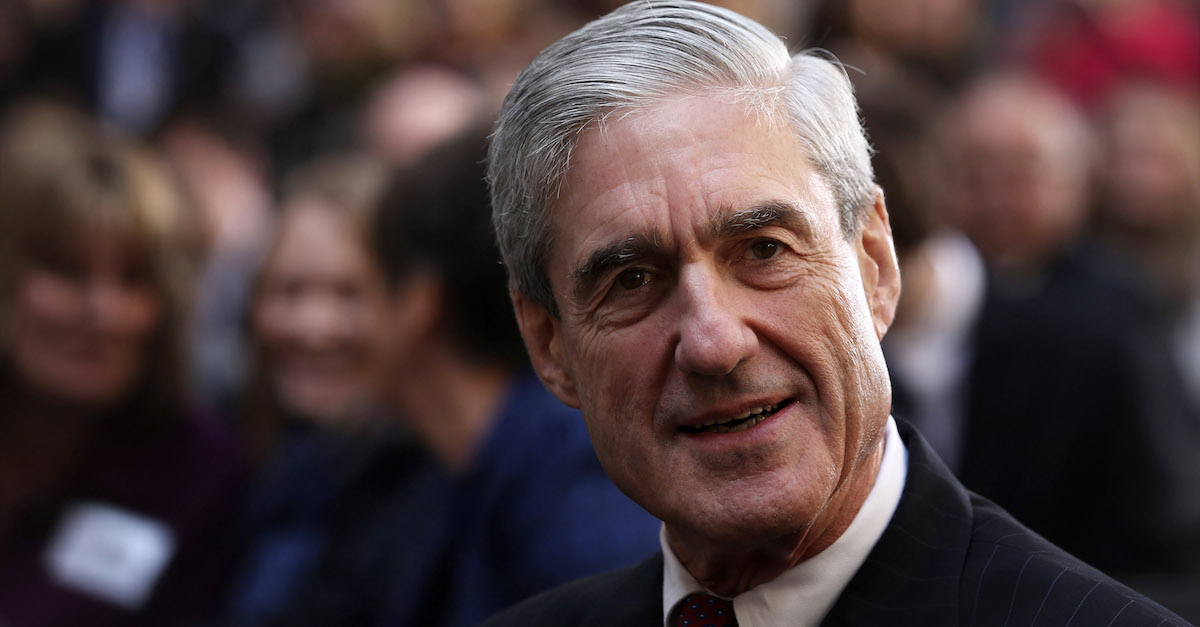
And after all of that, we finally have more information about the mystery appellant who resisted a grand jury subpoena from special counsel Robert Mueller.
In a three-page filing on Tuesday, which you can read below, Mueller was handed a victory in the matter of In Re Grand Jury Subpoena. While there was much speculation over who exactly this mystery appellant might be — it was even argued it might be President Donald Trump — we now know that it isn’t a human: it’s a foreign company.
“The Grand Jury seeks information from a corporation (‘the Corporation’ owned by Country A. After receiving a subpoena for that information, the Corporation moved to quash claiming (1) that it is immune under the Foreign Sovereign Immunities Act (“the Act”) [FSIA] and (2) that the subpoena is unenforceable as unreasonable and oppressive under Federal Rule of Criminal Procedure 17(c)(2) because it would require the Corporation to violate Country A’s domestic law,” the filing began.
A lower court determined that this “Company” had to comply with the grand jury subpoena and held it contempt when it refused. The court also slapped the appellant with monetary penalties that were to increase each day the company failed to comply. Then the company appealed.
The case has been speeding through the appellate court ever since, culminating in a very weird last Friday. Reporters were kicked off an entire floor of the D.C. Court of Appeals to keep information about this sealed case under wraps. The courtroom and the fifth floor were sealed; at least 15 reporters were ushered out; no one of note was spotted as there are ways to enter (and exit) the courthouse without being seen; reporters were eventually allowed back on the floor, but everything important had already occurred.
The D.C. Court of Appeals has decided to “decline to resolve whether foreign sovereigns are entitled to claim the protection of [FSIA] immunity provision.” What they did say is that “Textually speaking, nothing in the [FSIA] purports to strip the district courts of criminal jurisdiction.”
“[W]e find that the government satisfied its burden of establishing a reasonable probability that this ‘action is based upon . . . an act outside the territory of the United States in connection with a commercial activity of the foreign state elsewhere’ and that the ‘act cause[d] a direct effect in the United States,” the filing said. “We therefore agree that the Act does not immunize the Corporation from this subpoena.”
Remarkably, the unnamed corporation argued that it couldn’t comply with the subpoena because it is “unreasonable and oppressive.” Why? “Because it would require the Corporation to violate Country A’s law.”
It’s not a guarantee that this company is based in Russia, but Mueller is running a Russia Probe. It’s also worth noting that Russian President Vladimir Putin‘s Ministry of Justice has previously cited the FSIA when telling the DNC to get lost.
The appellate court said that the company “has fallen well short of carrying [the] burden” of proving its contention.
“The text of the foreign law provision the Corporation relies on does not support its position,” the filing said. “Consequently, we are unconvinced that Country A’s law truly prohibits the Corporation from complying with the subpoena.”
It remains to be seen exactly what company this is and where it is based, but eliminating the president and employees in the White House counsel’s office from the equation is a big step.
Mystery Mueller Opponent Ca… by on Scribd
[Image via Alex Wong/Getty Images]